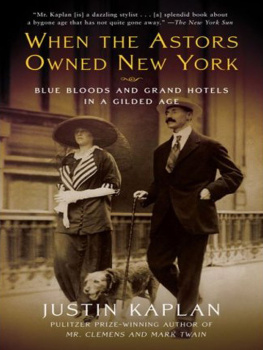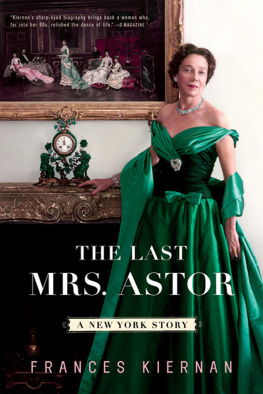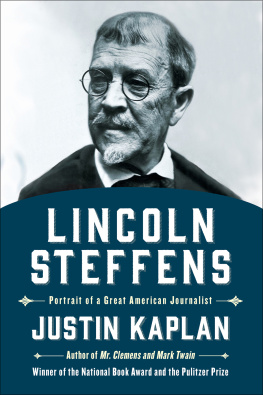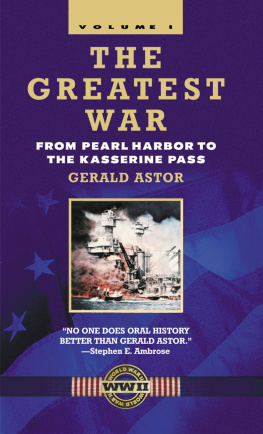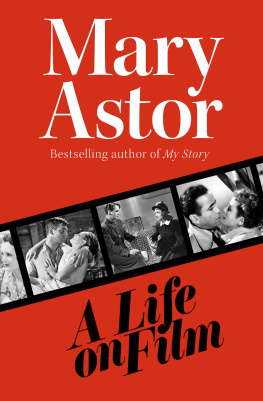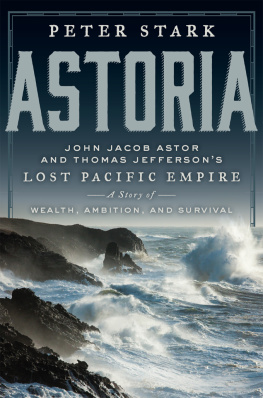Mark Twain and His World Mr. Clemens and Mark Twain
J USTIN K APLAN
When the Astors Owned New York
B LUE B LOODS
AND G RAND H OTELS
IN A G ILDED A GE
VIKING
VIKING
Published by the Penguin Group
Penguin Group (USA) Inc., 375 Hudson Street,
New York, New York 10014, U.S.A.
Penguin Books Ltd, 80 Strand,
London WC2R 0RL, England
Penguin Books Australia Ltd, 250 Camberwell Road, Camberwell,
Victoria 3124, Australia
Penguin Books Canada Ltd, 10 Alcorn Avenue,
Toronto, Ontario, Canada M4V 3B2
Penguin Books India (P) Ltd, 11 Community Centre, Panchsheel Park,
New Delhi110 017, India
Penguin Books (N.Z.) Ltd, Cnr Rosedale and Airborne Roads, Albany,
Auckland, New Zealand
Penguin Books (South Africa) (Pty) Ltd, 24 Sturdee Avenue,
Rosebank, Johannesburg 2196, South Africa
Penguin Books Ltd, Registered Offices:
80 Strand, London WC2R 0RL, England
Electronic edition: April 2007
All rights reserved
ISBN: 978-1-1012-1881-5
Without limiting the rights under copyright reserved above, no part of this publication may be reproduced, stored in or introduced into a retrieval system, or transmitted, in any form or by any means (electronic, mechanical, photocopying, recording or otherwise), without the prior written permission of both the copyright owner and the above publisher of this book.
The scanning, uploading, and distribution of this book via the Internet or via any other means without the permission of the publisher is illegal and punishable by law. Please purchase only authorized electronic editions and do not participate in or encourage electronic piracy of copyrighted materials. Your support of the authors rights is appreciated.
Making or distributing electronic copies of this book constitutes copyright infringement and could subject the infringer to criminal and civil liability.
www.us.penguingroup.com
To Annie, as ever
C ONTENTS
When the Astors Owned New York

L ike English royalty and with comparable pride, the Astors drew on a tiny pool of only a few names to mark and continue their succession. Within the compass of the present narrative, descent in the male line was as follows: John Jacob Astor, the founder, begat William (Backhouse), who begat three sons, John Jacob III, William Jr., and Henry. The eldest of these three sons, John Jacob III, begat another William (Waldorf ), who in turn begat John Jacob V. William Jr., meanwhile, begat John Jacob IV, who begat yet another William (Vincent) and John Jacob VI. John Jacob II, the founders other son, was mentally incompetent and had no part in the succession. Henry Astor, his nephew, was virtually expelled from the family after he married a farmers daughter.
Prologue
W HEN THE Titanic went down in the North Atlantic on the night of April 1415, 1912, she took with her John Jacob Astor IV. He was forty-seven years old and coheir, with his first cousin, William Waldorf Astor, to a historic American fortune. Colonel Astor, as he preferred to be known, had been traveling with his nineteen-year-old bride, the former Madeleine Talmage Force, who was five months pregnant.
When the ship began her fatal list to port, Astor helped his wife into a cork jacket, led her to a lifeboat, and waved to her from the deck as it was lowered away. The sea is calm, he assured her. Youll be all right. Youre in good hands. Ill see you in the morning. In obedience to the women-and-children-first law of the sea, he remained on deck and, according to some reports, later repaired to the ships smoking room for a game of cards. A fellow passenger, J. Bruce Ismay, managing director of the White Star Line, the ships owner, had jumped without hesitation into the first available lifeboat and rowed away with other survivors.
Astor was probably crushed by debris or a falling smokestack as the Titanic, her stern high in the air, sank by the head. A week or so later, a passing steamer, the cable ship Mackay-Bennett, picked up Astors body, floating erect in his life belt, with his gold watch and $2,500 in bills still in the pockets of his blue suit, and delivered it, along with about two hundred other corpses packed in ice in rough coffins, to Halifax. The Prince of Wales sent roses to Astors funeral at Rhinebeck, New York, in May. The following January a merchantman, traveling along the west coast of Africa, picked up a broken deck chair from the Titanic on which one of the victims, whom subsequent myth has held to have been Astor, a devout Episcopalian, had scratched with a penknife the words We will meet in heaven.
In his earlier years Jack Astor had earned a reputation as a spoiled lordling, deficient in grit and charm; a failed (and abused) husband whose miserable first marriage had ended in a divorce with an admission of adultery on his part. He had also been a public fool on more than one occasion. Although awed by his wealth, reporters who delighted in following his career dubbed him Jack Ass. His public rehabilitation had begun during Americas war with Spain in 18981899. He lent his 250-foot steel yacht Nourmahal to the navy, donated a battery of howitzers to the army for use in the Philippines, outfitted and drilled his own Astor company of artillerymen, and acquired a commission. He saw brief service in the field in Cuba, was invalided out, and returned home hailed as a warrior-patriot. From then on he was Colonel Astor. It was Colonel Astor, according to a headline, who Went Down Waving Farewell to His Bride. His death capped his rehabilitation.
Because Astor was the most socially prominent of the Titanic s first-class passengers, his death became a text for an outpouring of editorials, sermons, poems, and songs. Most of them suggested that wealth, whether earned or unearned, was, as always, a sign of grace, nobility of character, and elevated purpose. One song described Astor as a millionaire, scholarly and profound another, as a handsome prince of wealthnoble, generous, and brave. Now when the name of Astor is mentioned, ran another tribute, it will be the John Jacob Astor who went down with the Titanic that will first come to mind; not the Astor who made the great fortune, not the Astor who added to its greatness, but John Jacob Astor, the hero. Words unkind, ill-considered, were sometimes flung at you, Colonel Astor, said the publisher and popular sage Elbert Hubbard as he hailed nothing short of an apotheosis of a dead multimillionaire. We admit your handicap of wealthpity you for the accident of birthbut we congratulate you that as your mouth was stopped with the brine of the sea, you stopped the mouth of carpers and critics. (Seven years later Hubbard himself was silenced when a German submarine torpedoed the Lusitania off the Irish coast.)
Some moralists of the Titanic disaster sounded a sour note of social Darwinism. According to them, it had been contrary to the welfare of both the nation and the human race to give over places in the lifeboats to immigrants and other dregs of humanity traveling in steerage. These places rightfully belonged to men of substance in business, culture, public service, and society. In addition to Astor, among such men who stayed behind to die a heros death were Major Archibald Butt, President Tafts military aide; the eminent English journalist William T. Stead; copper-mining and smelting magnate Benjamin Guggenheim, who reputedly left a fortune estimated at $95 million; Isidor Straus ($50 million), owner of Macys, the worlds largest department store; and rare-book collector and Philadelphia Main Line socialite Harry Elkins Widener ($50 million). Astors fortune was reported to be about $150 million. (A multiple of sixteen may give a very rough approximation of this amount in present-day dollars: $2.4 billion.)

